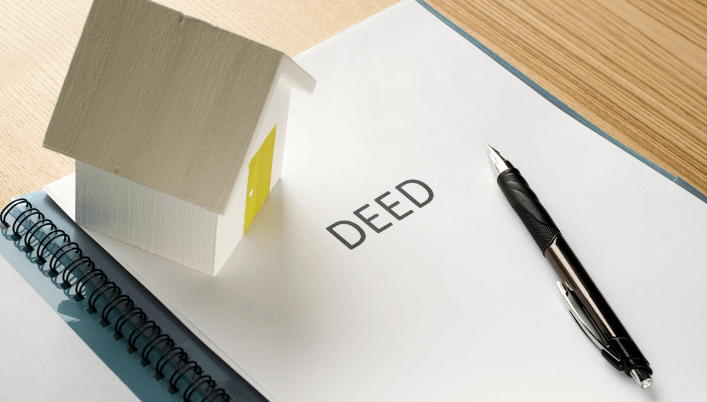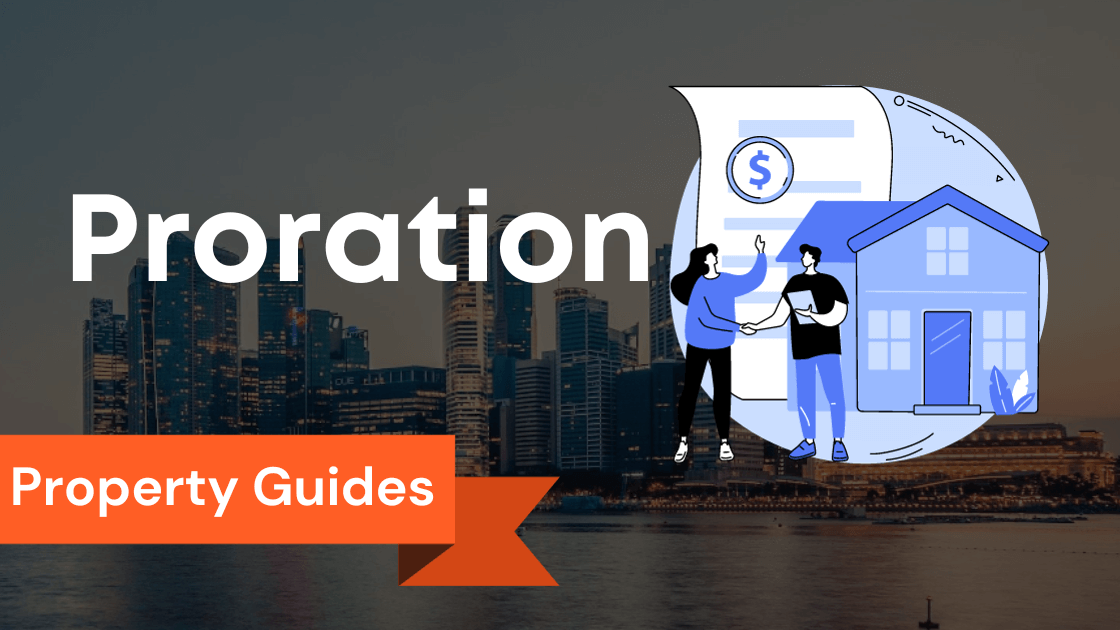What is a Property Title Deed?

Click here to access your title deed
A property title deed is a legal document that establishes ownership rights to a specific piece of real estate.
It serves as evidence of ownership and is a crucial component in any property transaction.
The title deed contains important information such as the property description, registered owner, and any encumbrances or restrictions on the property.
It is kept in the property register, which is maintained by the government or relevant authority.
Definition of a Property Title Deed
A property title deed, also known simply as a deed, is a legal document that proves ownership of a property.
It serves as evidence of ownership and outlines the legal rights and responsibilities that come with it.
The title deed is an essential legal requirement in real estate transactions, as it provides a definitive record of who owns the property and their rights over it.
Importance of a Property Title Deed
Having a property title deed is of utmost importance for property owners.
Here are some key reasons why:
- Proof of Ownership: The title deed serves as proof that you are the rightful owner of the property. It provides legal protection against any claims or disputes regarding ownership.
- Definitive Record: The title deed is an official and permanent record of the ownership of the property. It can be used to resolve any future disputes and to establish a clear chain of ownership.
- Real Estate Transactions: When buying or selling a property, the title deed is a crucial document that needs to be transferred to the new owner. It ensures a smooth transfer of ownership and protects the interests of both parties involved.
- Ownership of Property: The title deed outlines the rights and responsibilities that come with owning the property. It provides information on any restrictions, easements, or encumbrances that may affect the use or transfer of the property.
Different Types of Property Title Deeds in Singapore
In Singapore, there are various types of property title deeds.
These include:
- Type of Title Deed: The type of title deed depends on the type of property. Residential properties, such as condominiums or landed houses, have different title deeds than commercial or industrial properties.
- Certificates for Land Developments: For newly developed properties, the developer may issue certificates that serve as interim title deeds until the official title deed is issued.
- Categories of Property Deeds: Different categories of property deeds exist, such as freehold, leasehold, or strata titles. Each category has its own set of rights and restrictions.
It is essential to understand the specific type of title deed that applies to your property to ensure that you have the necessary rights and legal protection.
http://www.youtube.com/watch?v=fWJj53jOVJI
Property title deeds are crucial documents that provide proof of ownership, establish legal rights, and serve as a definitive record of property ownership.
They play a vital role in real estate transactions and provide peace of mind for property owners.
Key Takeaways
- Property Title Deed: This legal document establishes ownership rights to real estate and contains property details and ownership information.
- Importance: Property title deeds are vital for property owners as they provide proof of ownership, serve as a definitive record, and facilitate real estate transactions.
- Types in Singapore: Various types of property title deeds exist, including those for residential and commercial properties, as well as different categories like freehold or leasehold titles.
- Certificate of Title: It confirms ownership, contains property details, and is crucial for property transactions and amendments.
- Subsidiary Strata Certificate of Title: Used for condominiums or strata properties, it outlines unit ownership and provides access to development information.
- Subsidiary Certificate of Title: Proves ownership of specific land parcels within a larger property or estate, offering details about the parcel’s boundaries and size.
- HDB Title Deeds: Essential for HDB property owners, they serve as proof of ownership and can be viewed online or obtained during the conveyancing process.
- Viewing and Amending: To view your title deed, complete forms, submit documents, and pay fees. To amend it, engage a lawyer and follow the appropriate process.
- Common FAQs: Addresses frequently asked questions about viewing, amending, and handling property title deeds.
- Additional Resources: Provides links to government websites and registries for accessing property title deed information and services.
Types of Property Title Deeds

When it comes to property ownership, having a valid and clear title deed is essential.
A title deed serves as proof of ownership and provides a chain of ownership for a property.
In this section, we will explore three common types of property title deeds: the Certificate of Title (COT), Subsidiary Strata Certificate of Title (SSCT), and Subsidiary Certificate of Title (SCT).
Certificate of Title (COT)
A Certificate of Title (COT) is a written legal document issued by the Land Registry that confirms a person or entity’s ownership of a property.
It contains vital information about the property, such as its location, size, boundaries, and any registered interests or rights.
Obtaining a COT is crucial when purchasing or selling a property, as it assures that the property’s title is legitimate and properly registered.
It is also used to amend any changes to the property’s ownership, such as transfers, mortgages, or leases.
If you own a property, you can view your COT online through the Land Registry’s website.
This allows you to verify the validity of your title and keep track of any amendments made to it.
Subsidiary Strata Certificate of Title (SSCT)
A Subsidiary Strata Certificate of Title (SSCT) is a type of title deed used for properties in a condominium or strata development.
It is commonly referred to as the “title deed for a unit.”
In a condominium or strata development, individual units are owned by different individuals or entities, while common areas are shared by all unit owners.
The SSCT outlines the specific unit being owned by the holder, along with its boundaries, floor plan, and any registered interests or rights.
The SSCT also provides access to important information about the development, such as the condominium floor plans.
These plans describe the layout and dimensions of each unit, allowing buyers to understand the property’s structure and design.
Subsidiary Certificate of Title (SCT)
A Subsidiary Certificate of Title (SCT) is a title deed that is part of a collection of documents stored electronically by the Land Registry.
It primarily acts as evidence of ownership for land parcels that are part of a larger property or estate.
For example, if a larger property is divided into smaller lots or parcels, each lot will have its own SCT, which represents the specific portion of land owned by the holder.
The SCT contains details about the parcel, including its boundaries, size, and any registered interests or rights.
The introduction of the new online service by the Land Registry allows individuals to request amendments to an SCT, making the process of updating and maintaining property ownership records more convenient and efficient.
http://www.youtube.com/watch?v=wt_UiabuWiU
In conclusion, understanding the different types of property title deeds is crucial for property owners and buyers.
Whether it is the Certificate of Title (COT), Subsidiary Strata Certificate of Title (SSCT), or Subsidiary Certificate of Title (SCT), these documents provide proof of ownership and ensure the legitimacy and accuracy of property transactions.
By familiarizing themselves with these title deeds, individuals can confidently navigate the complexities of property ownership and transfer.
HDB Title Deeds

If you own a property in Singapore, particularly an HDB (Housing Development Board) property, understanding the concept of title deeds is essential.
In this article, we will delve into what HDB title deeds are, how you can view and amend them, and provide answers to some frequently asked questions related to this topic.
How to View Your HDB Title Deed
As an owner of an HDB property, you have the right to view your HDB title deed.
The title deed serves as proof of ownership and contains important information regarding your property, such as mortgage details and the type of title held.
Here is how you can view your HDB title deed:
- Property Alert Service: The HDB offers an online alert service that allows you to receive notifications when there are changes to your property’s title deeds. This service helps you stay updated and informed about any updates or amendments made to your title deeds.
- PDF Icon: To view your HDB title deed, visit the HDB website and navigate to the “My HDBPage” section. Look for the PDF icon next to your property’s address, and click on it to access the document.
- Conveyancing Process: If you have recently purchased or sold an HDB property, your lawyer or conveyancing officer should provide you with a copy of the title deed as part of the conveyancing process. You can also request a copy from them if you have not received it.
How to Amend Your HDB Title Deed
If you need to make amendments to your HDB title deed, such as updating your particulars or adding or removing owners, you can follow these steps:
- HDB: Contact the HDB and provide them with the necessary documentation and information regarding the amendments you wish to make. They will guide you through the process and provide you with the required forms or procedures.
- View Your Title Deed: Before making any amendments, ensure that you have a clear understanding of the current details stated in your title deed. This will help you identify the specific changes you need to make.
- Sale Deed: If you have recently purchased or sold your HDB property, you may need to provide a sale deed or any relevant document to support the amendments you wish to make. Consult with your lawyer or conveyancing officer for guidance.
Common FAQs About HDB Title Deeds
Here are answers to some frequently asked questions related to HDB title deeds:
- Where are title deeds stored? HDB title deeds are stored electronically by the HDB and can be accessed through their online portal or requested from the HDB directly.
- Is the title deed a legal document? Yes, the title deed is a legal document that proves your ownership of an HDB property and contains important information about the property.
- Can I use my title deed to apply for a loan? Yes, you can present your title deed to financial institutions, such as the CPF Board or banks, as part of the application for a home loan.
- Can I amend the title deed myself? No, only authorized personnel or relevant government agencies, such as the HDB, can make amendments to title deeds. It is important to follow the correct procedures and consult the appropriate authorities.
- Do I need a lawyer to handle amendments to my title deed? While it is not mandatory to engage a lawyer for amendments to your HDB title deed, consulting a lawyer or conveyancing officer can provide valuable guidance and ensure that the process is carried out correctly and legally.
In conclusion, understanding HDB title deeds is crucial for property owners in Singapore.
Whether you need to view or amend your title deed, following the correct procedures and seeking professional advice when needed will help ensure a smooth process.
Private Property Title Deeds

In Singapore, property title deeds play a crucial role in the real estate industry.
Understanding the process of obtaining and amending private property title deeds is essential for property owners, buyers, and sellers.
This article will provide an overview of private property title deeds, how to view and amend them, and address common FAQs surrounding this topic.
How to View Your Private Property Title Deed
Viewing your private property title deed allows you to understand the ownership and legal status of the property.
The process can be arduous, but with the right guidance, you can successfully view your title deed.
Here are the steps involved:
- Complete the Necessary Forms: You will need to fill out specific forms to request a copy of your title deed. These forms are available at the Singapore Land Authority (SLA) or can be downloaded from their website.
- Submit the Forms: Once you have completed the forms, submit them along with the required documents to the SLA. These documents typically include proof of ownership, such as a copy of the purchase agreement or the previous owner’s title deed.
- Pay the Fees: There is a fee associated with the viewing of private property title deeds. Make sure to pay the required fee at the SLA office.
- Wait for Approval: After submitting the forms and paying the fees, you will need to wait for approval from the SLA. This process may take some time, so be patient.
- Access Your Title Deed: Once your request is approved, you will be able to view your private property title deed at the SLA office. You can also request a copy for your records.
How to Amend Your Private Property Title Deed
Amending a private property title deed is necessary when there are changes in property ownership or when errors need to be corrected.
Here are the steps involved in amending your title deed:
- Contact a Lawyer: It is advisable to engage a lawyer who specializes in property law to guide you through the amendment process. They will help ensure that all legal requirements are met.
- Gather the Required Documents: You will need to gather relevant documents, such as proof of ownership, identity documents, and any supporting documentation related to the amendment.
- Prepare the Amendment Documents: Your lawyer will assist you in preparing the necessary amendment documents, such as a Deed of Rectification or an application form for updating the title deed.
- Submit the Amendment Documents: Once the amendment documents are prepared, they need to be submitted to the SLA along with any required fees.
- Wait for Approval: The SLA will review your amendment request and may request additional information if needed. Once approved, the amended title deed will be issued.
Common FAQs About Private Property Title Deeds
Here are answers to some frequently asked questions about private property title deeds:
- Can I replace my title deed if it is lost or damaged? Yes, you can request a replacement title deed from the SLA. Follow the appropriate procedures and pay the necessary fees to obtain a new copy.
- What happens if I sell my share of the property? If you sell your share of the property, the title deed would need to be updated to reflect the change in ownership. Consult with a lawyer to ensure a smooth transaction.
- Do I need to engage a buying agent to handle the title deed? While it is not mandatory, engaging a buying agent can be beneficial as they are familiar with the association requirements and can ensure a smooth transfer of ownership.
- Are there specific terms of sale mentioned in the title deed? The title deed typically does not include specific terms of sale. Instead, it serves as proof of ownership and legal status of the property.
Understanding private property title deeds and the process of viewing and amending them is crucial for property owners in Singapore.
By following the necessary procedures and seeking legal guidance when needed, property owners can ensure a smooth and successful handling of their title deeds.
Additional Resources

When it comes to property title deeds in Singapore, several additional resources can provide you with valuable information and services.
These resources include various government websites and registries that cater to both residential and commercial property owners.
Here are some key resources that can assist you in understanding and managing property title deeds in Singapore.
Singapore Land Authority (SLA) Website
The Singapore Land Authority (SLA) website is a valuable resource for property owners and business users alike.
On this website, you can access important information regarding land matters, including property title deeds.
One of the key features provided by SLA is the availability of soft copies of your title deed.
This allows you to easily access and manage your property title online. HDB Flat landed property without digitise singpass.
Additionally, the SLA website offers various e-services for businesses, including the ability to subscribe to Land Info Alerts.
By subscribing, you can receive notification updates regarding changes or transactions related to your property, ensuring that you are always up-to-date with the latest information.
HDB Website
For individuals or businesses who own public housing properties in Singapore, the Housing and Development Board (HDB) website is an essential resource.
The HDB website provides detailed information on various aspects of property ownership, including the transfer of property title deeds.
If you are dealing with quitclaim deeds or sale and purchase agreements related to your HDB property, you can find relevant information and guidelines on the HDB website.
Additionally, the website provides information on the process to ensure that your property is free from encumbrances.
Private Property Title Deed Registry
For those who own private properties in Singapore, accessing the Private Property Title Deed Registry is crucial.
This registry allows you to search for and obtain copies of your property title deeds, as well as other conveyancing documents.
Furthermore, if your property has a mortgage or is subject to the Central Provident Fund (CPF), the Private Property Title Deed Registry can assist you with the necessary information and documentation.
This resource is particularly useful for businesses and individuals who need to ensure compliance with legal requirements related to their property.
Overall, these additional resources provide property owners in Singapore with the tools and information needed to manage and understand property title deeds effectively.
Whether you are a business owner or an individual, utilizing these resources can help ensure that you remain compliant and well-informed about your property ownership rights and obligations.
Conclusion
In conclusion, branding is a crucial aspect of any business, regardless of its size.
It allows you to differentiate yourself from competitors and create a unique identity that resonates with your target audience.
By investing in branding efforts, you can become more recognizable and memorable to customers, ultimately fostering trust and influencing their buying decisions.
To effectively brand your business, it is important to develop a clear brand strategy that communicates your values consistently.
Building a strong online presence and delivering exceptional customer experiences are also key elements in branding success.
Some notable examples of companies that have successfully utilized branding include Apple, Nike, and Coca-Cola.
These brands have effectively communicated their values, unique selling propositions, and quality through consistent messaging and captivating visual identity.
In conclusion, branding is a powerful tool that can help your business stand out and become a household name.
By investing in branding, you can create a strong and reliable brand identity that sets you apart from competitors and resonates with your target audience.
Property Title Deeds Singapore Conclusion
In conclusion, property title deeds are an essential aspect of real estate ownership in Singapore.
Whether you are buying or selling a property, it is crucial to ensure that you have a valid title deed that is registered with the Singapore Land Authority (SLA).
A good title ensures that you have legal ownership and possession of the property.
When you buy a property in Singapore, the title deed will be printed and registered with the SLA.
It contains important information such as the boundaries, restrictions, and encumbrances on the property.
It is vital to review the title deed and boundary plans before making any transactions or taking out a mortgage on your property.
If you own a property in Singapore, you can search for your title records through the Integrated Land Information Service (INLIS) website.
You can also view your title deeds and obtain a certified true copy if needed.
It is important to keep track of your title deeds and ensure that they are up to date.
In the case of name changes, you can update your property title through a deed poll.
The original deed poll and other relevant documents must be submitted to the SLA for the necessary changes to be made.
Once approved, a new title deed will be printed with your updated name.
Overall, property title deeds play a vital role in establishing ownership and possession of property in Singapore.
They provide important information and serve as legal documents that ensure the validity and security of real estate transactions.
It is important to understand the process and requirements involved in obtaining and updating title deeds to safeguard your property rights.
Frequently Asked Questions
What are property title deeds?
Property title deeds are legal documents that establish ownership of a property.
They contain information about the ownership, boundaries, and any encumbrances related to the property.
What are the different types of title deeds?
There are several types of title deeds, including warranty deeds, quitclaim deeds, and grant deeds.
Each type of deed serves a different purpose and provides different levels of protection for the buyer.
How can I amend my title deed?
To amend your title deed, you will need to follow the legal process for making changes to property ownership records.
This typically involves submitting an application to the relevant land titles registry and providing supporting documentation.
How can I view my title deed?
You can view your title deed by accessing the land titles registry or using an online platform such as “myproperty” or “myproperty by SLA”.
These platforms allow property owners to access and download their title deeds.
What is a sale deed?
A sale deed is a legal document that transfers the ownership of a property from one party to another.
It contains details about the buyer, seller, purchase price, and other terms and conditions of the sale.
Where are title deeds stored?
Title deeds are typically stored at the land titles registry of the Singapore Land Authority (SLA).
However, with the digitization of records, there is a shift towards a paperless title scheme, allowing property owners to access their title deeds online.
What is a caveat?
A caveat is a legal notice that can be lodged at the land titles registry to prevent any transactions or dealings related to a specific property.
It serves as a warning to potential buyers or mortgagees that there may be an interest or claim on the property.
How can I replace my title deed?
To replace your title deed, you will need to apply for a replacement at the land titles registry.
This typically involves providing proof of ownership, paying a fee, and completing the necessary application forms.
Can I release my title deed from a mortgage on my property?
Yes, you can release your title deed from a mortgage by repaying the outstanding loan amount and requesting the mortgagee to release the title deed.
This process will vary depending on the terms and conditions of your mortgage agreement.
What information is included in a title deed?
A title deed is a document that contains information about the property, including the legal description of the property, details of the registered owner, any encumbrances or liens on the property, and the date of registration.












